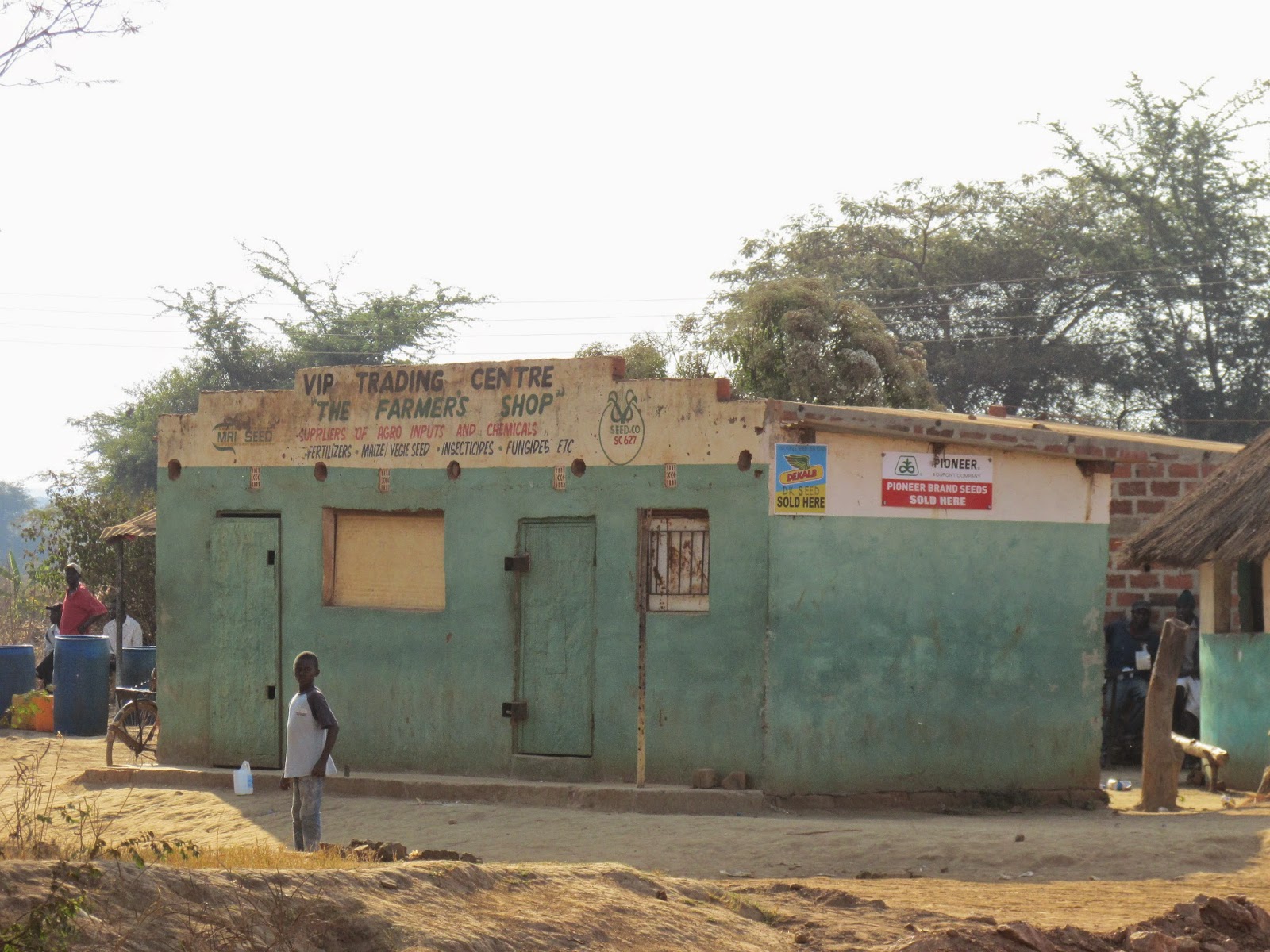The last several days of my trip were a whirlwind. I worked in the school and then I got to spend two days in Livingstone with one of the missionaries. We took a very long bus ride from Lusaka to Livingstone. I’m glad that I got to ride the bus, even though I spent five out of the seven-and-a-half hours car--er, bus--sick, because I got to see the surrounding area (we got to drive through the hills, which were gorgeous).
The day after we got there, Miss Primrose and I spent the afternoon at Victoria Falls on the Zimbabwe side, which I have heard is the prettier side. As I stood in front of one of the most amazing natural wonders in the entire world, grinning and soaked to the bone, I wondered how on earth someone could spend even a second glancing at the Falls, then walk away and stubbornly proclaim, “There is no God.”
Before you even get to the Falls, you can see the huge cloud of water vapor in the sky. And you can hear them. It is one of the neatest sounds. I cannot adequately describe them, so I shall let the pictures speak:
As you can see, the water vapor is heavy. In some places, it is so heavy that all you can see is a white wall.
Please note the size of the protective fence.
After spending some time at the Falls, Miss Primrose and I had cappuccinos at the Falls Cafe. Then we headed back towards the Zambia-Zimbabwe border. Or, we thought we were. We ended up walking in the exact opposite direction for a little bit, before two taxi drivers told us that we were going in the wrong direction. So we headed back to the Zimbabwean customs, (where we got laughed at by the customs officers), then crossed the border and took a taxi to an Italian restaurant in Livingstone. There, I was opening my menu, when I saw a sign on a chalkboard: crocodile pizza. That was all I needed to see. I decided to try crocodile. It was quite good--it tasted like chicken with a fishy twist. (Why does everything come back to chicken?) That night we had dinner at the lodge, where I tried oxtail, which was not as good as crocodile. Let’s just say that it is not the sort of food that is desirable while carrying on a dinner conversation. I now know why toothpicks were invented.
The next day, we set out on a safari into Botswana. The first part of the day was spent on the river, and the second was spent on a game drive. Here are some of the things we saw:
The next day, we headed back to the village. It was so good to see everyone again: I had missed them!
The last few days of my stay were spent helping in the school. I was asked to substitute for third and sixth grade, so I was the class teacher.
Before I knew it, I was packing to go halfway around the world. Leaving was the hardest part of the whole trip--it is impossible to make it through around one hundred goodbyes without dissolving into tears. Now that I am back, I have been praying for an opportunity to return. I hope to attend college and then use my major to return to Africa long-term. Please pray for me as I try to discern what to major in.









































